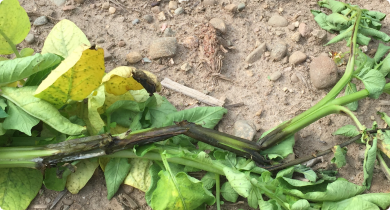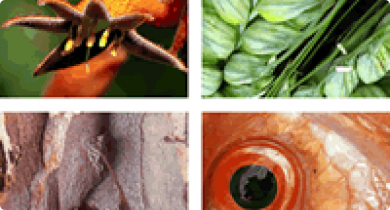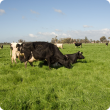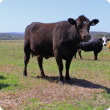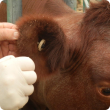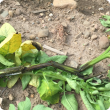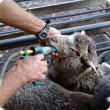Diseases
Diseases have a detrimental effect on plants and animals and impact on market access and agricultural production. Diseases include micro-organisms, disease agents (bacteria, fungi and viruses), infectious agents, parasites and genetic disorders.
Western Australia is free from some of the world's major agricultural and livestock diseases. Biosecurity measures on your property are vital in preventing the spread of diseases.
The Department of Primary Industries and Regional Development provides:
- biosecurity/quarantine measures at the WA border to prevent the entry of plant and animal diseases
- post border biosecurity measures for harmful animal and plant diseases
- advice on widespread diseases present in the state.
For advice on animal and plant diseases search our website, the Western Australian Organism List or contact our Pest and Disease Information Service (PaDIS).
For diagnostic services, please contact our Diagnostic Laboratory Services.
Filter by search
Filter by topic
- Crops (479) Apply Crops filter
- Grains (407) Apply Grains filter
- Fungi (384) Apply Fungi filter
- Crop diseases (367) Apply Crop diseases filter
- Pulses (239) Apply Pulses filter
- Field peas (231) Apply Field peas filter
- Biosecurity & quarantine (162) Apply Biosecurity & quarantine filter
- Biosecurity (160) Apply Biosecurity filter
- Livestock health & diseases (130) Apply Livestock health & diseases filter
- Livestock & animals (115) Apply Livestock & animals filter
- Livestock biosecurity (113) Apply Livestock biosecurity filter
- Livestock disease surveillance (109) Apply Livestock disease surveillance filter
- Livestock species (95) Apply Livestock species filter
- Canola (76) Apply Canola filter
- Horticulture (71) Apply Horticulture filter
- Livestock management (51) Apply Livestock management filter
- Sheep (44) Apply Sheep filter
- Plant biosecurity (44) Apply Plant biosecurity filter
- Control methods (42) Apply Control methods filter
- Wheat (41) Apply Wheat filter
- Grains research & development (34) Apply Grains research & development filter
- Emergency animal disease preparedness (34) Apply Emergency animal disease preparedness filter
- Chemicals (34) Apply Chemicals filter
- Viruses & virus-like (33) Apply Viruses & virus-like filter
- Barley (32) Apply Barley filter
- Lupins (31) Apply Lupins filter
- Beef cattle (30) Apply Beef cattle filter
- Vegetables (29) Apply Vegetables filter
- Pests (28) Apply Pests filter
- Fruit (27) Apply Fruit filter
- Dairy cattle (24) Apply Dairy cattle filter
- Management & reproduction (18) Apply Management & reproduction filter
- Oats (17) Apply Oats filter
- Fungicides (14) Apply Fungicides filter
- Bacteria (14) Apply Bacteria filter
- Potatoes (13) Apply Potatoes filter
- Pigs (13) Apply Pigs filter
- Mechanical, physical and cultural (13) Apply Mechanical, physical and cultural filter
- Pest insects (13) Apply Pest insects filter
- Quarantine (12) Apply Quarantine filter
- Poultry & birds (12) Apply Poultry & birds filter
- Feeding & nutrition (12) Apply Feeding & nutrition filter
- Livestock parasites (11) Apply Livestock parasites filter
- Goats (11) Apply Goats filter
- Nursery & cutflowers (10) Apply Nursery & cutflowers filter
- Grapes & wine (10) Apply Grapes & wine filter
- Citrus (10) Apply Citrus filter
- Weeds (9) Apply Weeds filter

